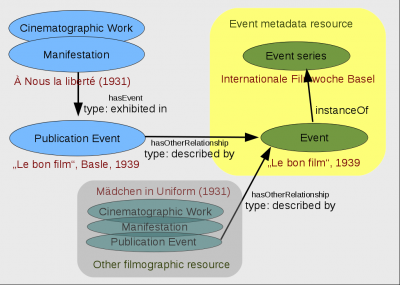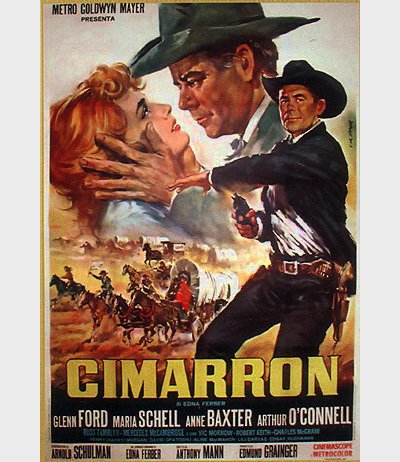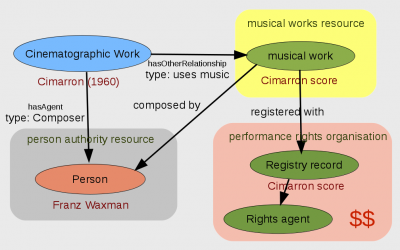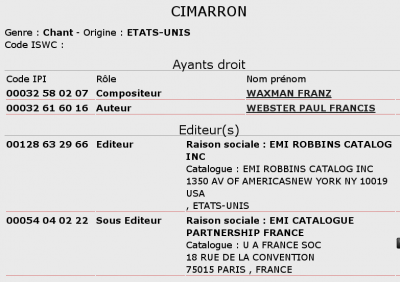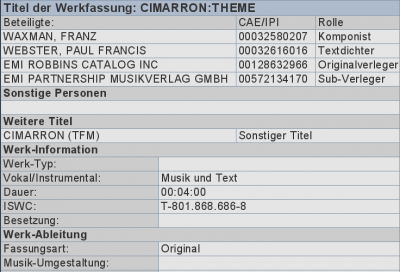Difference between revisions of "Relationships with objects in other databases"
From filmstandards.org
| (2 intermediate revisions by the same user not shown) | |||
| Line 40: | Line 40: | ||
In this case, we include a reference to a record from a '''performing rights organisation''' as an aid to users doing rights research. | In this case, we include a reference to a record from a '''performing rights organisation''' as an aid to users doing rights research. | ||
| + | |} | ||
| + | |||
| + | {| style="float: right; border: 1px solid #BBB; margin: .46em 0 0 .2em;" | ||
| + | |- | ||
| + | | valign="top" width="405px" |[[File:Waxman-cimarron-sacem.png|400px]]<br /> | ||
| + | <span style="font-size:8pt"> | ||
| + | from: http://www.sacem.fr/oeuvres/oeuvre/rechercheOeuvre.do | ||
| + | </span> | ||
| + | |||
| + | | valign="top" width="405px" | | ||
| + | This is what we would get if our '''musical works record''' for the Cimarron title song had a '''link to the''' French '''SACEM database'''. SACEM is the French performing rights organisation collecting royalties for musicians and rights holders. | ||
| + | |} | ||
| + | |||
| + | {| style="float: right; border: 1px solid #BBB; margin: .46em 0 0 .2em;" | ||
| + | |- | ||
| + | | valign="top" width="405px" |[[File:Waxman-cimarron-gema.png|400px]]<br /> | ||
| + | <span style="font-size:8pt"> | ||
| + | from: https://online.gema.de/werke/ | ||
| + | </span> | ||
| + | |||
| + | | valign="top" width="405px" | | ||
| + | ... and this is what a link to GEMA, the German performance rights organisation, would produce. | ||
| + | |||
| + | Note that authors, composers, arrangers, as well as publishers or '''agents are identified by an IPI''' (Interested Party Identifier) number. Adding this number to a person authory record can also facilitate rights research. | ||
| + | |} | ||
| + | |||
| + | {| height="20px" width="100%" | ||
| + | |- style="text-align:center; " | ||
| + | |<span style="color:#808080"> • Previous: [[Relating artifacts with events]] • Up: [[TC 372 Workshop Compendium|Contents]] • Next: [[In-house usage scenarios]] • </span> | ||
| + | |- | ||
|} | |} | ||
Latest revision as of 07:56, 20 May 2011
From the TC 372 Workshop Compendium
Taking the internet seriously
Film works are not only of interest because of their immediate content, but also for creative works that have been used in, or derived from them.
| • Previous: Relating artifacts with events • Up: Contents • Next: In-house usage scenarios • |
